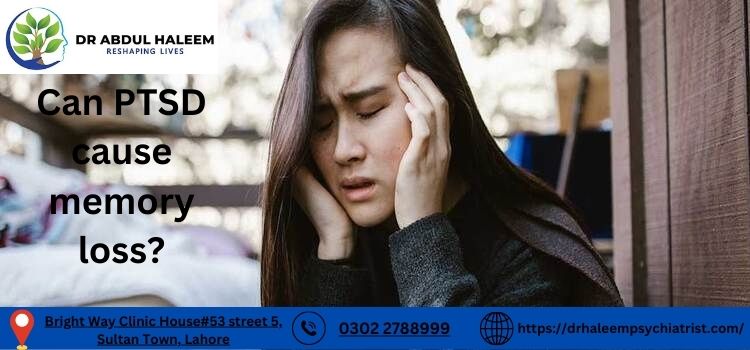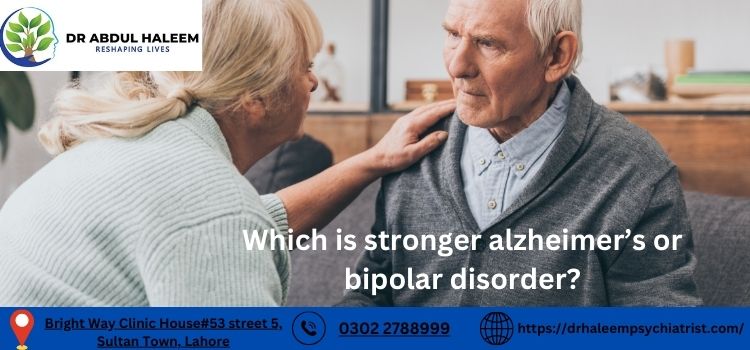The question that arises is what are the four types of PTSD? Post-Traumatic Stress Disorder (PTSD) is a mental disorder that can occur after experiencing or witnessing a traumatic event. PTSD is a long-lasting condition that can have a significant impact on an individual’s mental and physical well-being.
Drug abuse and a family history of PTSD can also lead to this disorder. In this article, we will discuss the four types of PTSD and how each type is identified Moreover, we will also discuss how to get help if you or someone you know is struggling with PTSD.
Let’s drive in to get more details.
What are the four types of PTSD?
The four types of Post-Traumatic Stress Disorder (PTSD) are as follows:
Acute Stress Disorder
Acute stress disorder is the type of PTSD occurs in the first month after a traumatic event and symptoms last for three months or less. Symptoms include flashbacks, nightmares, difficulty concentrating, irritability, agitation, and hypervigilance.
Uncomplicated PTSD
Symptoms of uncomplicated PTSD typically occur after one month and can last for six months or more. Symptoms include feelings of intense fear, helplessness, guilt, shame, depression, repeated flashbacks to the traumatic event, avoidance of certain situations that may trigger memories of the trauma, and extreme vigilance.
Complex PTSD
This type of PTSD occurs when an individual faces prolonged and severe trauma, such as torture or captivity. Symptoms include intense fear, flashbacks, nightmares, difficulty concentrating, avoidance of certain situations that may trigger memories of the trauma, depression, anxiety, and hypervigilance.
Chronic PTSD
Chronic PTSD is a more severe form of PTSD that develops when symptoms have been present for more than one year. Symptoms include symptoms from the other types of PTSD, such as flashbacks, nightmares, and avoidance of certain situations that may trigger memories of the trauma. In addition to these symptoms, individuals with chronic PTSD also experience a sense of emotional numbing and difficulty forming relationships.
How to Get Help
If you or someone you know is struggling with PTSD, seeking professional help from a mental health provider is the best course of action. A mental health professional can provide counseling and therapy to help you manage your symptoms of PTSD and work through the traumatic event. Additionally, there are support groups available for individuals who have experienced trauma as well as online resources that may be beneficial in managing PTSD symptoms.
It is important to remember that PTSD is common and treatable with the right support. Reach out for help if you or someone you know is struggling with PTSD. With professional help, individuals can learn coping strategies to manage their symptoms and live a life free of fear and distress.
Symptoms of PTSD

The symptoms of PTSD can vary from person to person, but the most common signs and symptoms include:
- Flashbacks or intrusive memories of the traumatic event
- Nightmares or bad dreams about the traumatic event
- Avoidance of situations that may trigger memories of the traumatic event
- Feelings of guilt, shame, and self-blame
- Difficulty concentrating or making decisions
- Emotional numbing or detachment from others
- Hypervigilance and trouble sleeping
- Panic attacks and anxiety
- Depression and suicidal thoughts or behavior
If you have experienced any of these symptoms, it is important to reach out for help. A mental health professional can help you learn coping strategies and work through the traumatic event.
Treatment for PTSD
Treatment for PTSD typically involves a combination of medication and psychotherapy. Medication can help reduce symptoms such as anxiety, depression, or insomnia. In addition, some medications may be used to treat specific symptoms such as flashbacks or intrusive memories.
Psychotherapy
Psychotherapy is an important part of treating PTSD and helping individuals work through the traumatic event. Types of psychotherapy that may be used include cognitive-behavioral therapy (CBT) and exposure therapy. CBT helps individuals identify negative thinking patterns that can prevent them from recovering from the traumatic event, while exposure therapy helps individuals confront their fears in a safe environment. Other types of psychotherapy may also be used to treat PTSD such as mindfulness-based stress reduction (MBSR) and dialectical behavior therapy (DBT).
PTSD is a serious mental disorder that can have a significant impact on an individual’s life. If you or someone you know is struggling with PTSD, it is important to seek help from a mental health provider. With the right treatment and support, individuals can learn coping strategies and live a life free of fear and distress.
Is PTSD a real mental illness?
Yes, PTSD is a real mental disorder and can have a serious impact on an individual’s life. Symptoms of PTSD can last for months or even years after experiencing a traumatic event. It is important to note that PTSD is not just experienced by people who have been in the military or war; it can occur following any type of trauma such as sexual assault, natural disasters, or car accidents. If you are experiencing symptoms of PTSD, it is important to reach out for help from a mental health provider. With professional help, individuals can learn coping strategies and work through the traumatic event.
It is also important to remember that PTSD is a treatable condition. With the right treatment and support, individuals can manage their symptoms and live a life free of fear and distress. Don’t be afraid to reach out for help if you or someone you know is struggling with PTSD. There are resources available to help those who are suffering from this mental health condition.
Can PTSD be cured?
The short answer is yes, we can cure PTSD. With the right support and treatment, individuals can learn how to manage their symptoms of PTSD and live a life free from fear and distress. Treatment for PTSD typically involves cognitive-behavioral therapy (CBT) which helps individuals identify unhelpful thought patterns and replace them with more positive thoughts. Additionally, medications such as antidepressants and antianxiety medications can be used to help manage symptoms.
It is important to remember that PTSD is treatable, and with the right support, you can learn how to cope with your symptoms and live a healthy life. Reach out for help if you or someone you know is struggling with PTSD. With professional help, individuals can learn coping strategies to manage their symptoms and live a life free from fear and distress.
Can PTSD go away?
Yes, PTSD can go away with the right treatment and support. Treatment for PTSD typically involves a combination of medications and psychotherapy. Medications such as antidepressants or anti-anxiety drugs can help reduce symptoms such as insomnia or anxiety, while psychotherapy can help individuals work through traumatic events. Additionally, there are support groups available for those who have experienced trauma as well as online resources that may be beneficial in managing PTSD symptoms.
It is important to remember that PTSD is treatable and with the right support. The individuals can learn how to manage their symptoms and live a healthy life. Reach out for help if you or someone you know is struggling with PTSD. With professional help, individuals can learn coping strategies to cope with their symptoms and live a life free from fear and distress.
Can PTSD cause memory loss?

Yes, PTSD can cause memory loss or difficulty remembering certain events. This is typically due to the emotional distress of a traumatic event and how it affects our brain’s ability to store and recall information. Memory problems associated with PTSD are usually short-term and can improve with treatment. However, if you are having difficulty remembering things, it is important to talk with a mental health professional to determine the best course of action.
In addition, there are strategies that can help individuals with PTSD manage memory-related problems. For instance, writing down important information or keeping a journal can be helpful in reducing forgetfulness. Additionally, relaxation techniques and mindfulness exercises may also help reduce stress levels and improve memory. Finally, talking with a therapist can help individuals develop coping strategies and learn how to manage their PTSD symptoms. With the right treatment and support, individuals can learn strategies to improve their memory and live a healthier life.
Is PTSD serious?
Yes, PTSD is a serious mental disorder that can have a significant impact on an individual’s life. Symptoms of PTSD can be debilitating and can last for months or even years after experiencing a traumatic event. It is important to note that PTSD should not be taken lightly as untreated symptoms can lead to serious consequences such as depression, substance use disorders, and suicidal ideation.
If you or someone you know is struggling with PTSD, it is important to seek help from a mental health provider. With the right treatment and support, individuals can learn coping strategies and live a life free of fear and distress. There are many resources available to help those who are suffering from this mental health condition including talk therapy, medication, cognitive-behavioral therapy, and support groups. Don’t be afraid to reach out for help if you or someone you know is struggling with PTSD. With the right treatment and support, individuals can learn how to manage their symptoms and live healthy life.
How does PTSD affect relationships?
PTSD can have a serious impact on relationships due to the psychological and emotional distress associated with the disorder. Symptoms such as intrusive memories, flashbacks, and avoidance behaviors can lead to feelings of anger, sadness, fear, and guilt which can strain relationships. Additionally, individuals may also experience difficulty communicating their needs or feelings due to their symptoms.
If you or someone you know is struggling with PTSD, it is important to reach out for help. Treatment for PTSD typically involves a combination of medications and psychotherapy. Additionally, there are support groups available for those who have experienced trauma as well as online resources that may be beneficial in managing PTSD symptoms. It is important to remember that with the right treatment and support, individuals can learn how to manage their symptoms and live a healthy life. With understanding and patience, relationships can be strengthened and individuals can learn how to cope with the effects of PTSD. Don’t be afraid to reach out for help if you or someone you know is struggling with PTSD. With the right treatment and support, individuals can live a life free from fear and distress.
Can you tell if someone has PTSD?
Unfortunately, it is not always easy to tell if someone has PTSD as there are many symptoms that can be associated with the disorder. Some of the most common signs of PTSD include flashbacks, intrusive memories, emotional numbness, and avoidance behaviors. Additionally, individuals may also have difficulty sleeping or concentrating. It is important to remember that everyone experiences trauma differently and some individuals may not show any signs of PTSD.
If you are concerned that someone may have PTSD, it is important to reach out and offer your support. You can also encourage them to speak with a mental health professional who will be able to provide the best course of action for managing their symptoms. It is important to remember that with the right treatment and support, individuals can learn coping strategies and live a life free of fear and distress. Don’t be afraid to reach out for help if you or someone you know is struggling with PTSD. There are resources available to help those who are suffering from this mental health condition. With the right treatment and support, individuals can learn how to manage their symptoms and live a healthy life.
Conclusion
The question that arises is what are the four types of PTSD? PTSD is a serious mental disorder that can have a significant impact on an individual’s life. It is important to remember that PTSD is treatable and with the right support, individuals can learn how to manage their symptoms and live healthier lives.
Reach out for help if you or someone you know is struggling with PTSD. With professional help, individuals can learn coping strategies and live a life free of fear and distress. Don’t be afraid to ask for help – it is the first step towards recovery.
FAQs
Frequently asked questions by people.
How is PTSD diagnosed?
PTSD is typically diagnosed by a mental health professional based on the criteria outlined in the Diagnostic and Statistical Manual of Mental Disorders (DSM-5). During the assessment, clinicians will ask questions about symptoms, past traumas, and current functioning.
Do I have PTSD or anxiety?
It can be difficult to differentiate between PTSD and anxiety. Both disorders are characterized by symptoms such as intense fear, avoidance of certain situations, and difficulty sleeping.
Is PTSD a anxiety disorder?
Yes, PTSD is classified as an anxiety disorder. It is characterized by symptoms such as intrusive memories, flashbacks, and avoidance behaviors. Individuals may also experience difficulty sleeping or concentrating. With the right treatment and support, individuals can learn how to manage their symptoms and live healthier lives.


